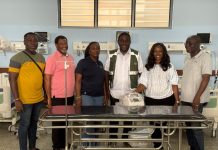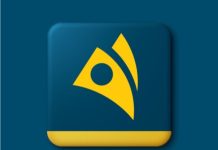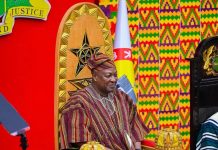THEME; “MULTILINGUAL EDUCATION – A NECESSITY TO TRANSFORM EDUCATION”
The 24th Edition of the UNESCO International Mother Language Day Celebration comes off on the 21st of February, 2023 under the theme; “Multilingualism – A Necessity to Transform Education”.
The 195 Member States of UNESCO are therefore to situate the theme into their own national contexts and use same to bring about the needed constructive transformation of their respective educational systems as we also enter another phase of the International Decade of Indigenous Languages 2022 – 2032.
Ghana has since time immemorial been championing multilingualism within the educational system. This has led to the study of fifteen indigenous Ghanaian Languages in schools and colleges across the country. These examinable indigenous languages include; Asante Twi, Akuapem Twi, Mfantse, Ga, Dangme, Ewe, Nzema, Dagbani, Dagaare, Gonja, Gurune, Kusaal, Sissala, Likpakpaanl, Kasem etc.
There exist over 60 distinct languages in Ghana so if 15 of these are examinable in schools and colleges, then in principle there is a lot that needs to be done to have a comprehensive study of the remaining non-examinable languages on board the educational curricula of schools and colleges in Ghana.
Our preparedness as a nation comes to test in this discussion. There are several bottlenecks that militate against the holistic study of all the indigenous languages in Ghana within the Ghana Education Service (GES) curricula for schools and colleges.
Not all the indigenous languages in Ghana have been reduced into writing and for that matter we lack as a nation, the requisite manpower requirements to carry out this arduous but important task of making all indigenous languages in Ghana examinable with the requisite alphabets, literary texts and rudiments of grammar to role these indigenous languages on board the academic calendar.
We have as an important step towards this desirable transformation process, to produce textbooks from KG to tertiary in prose, drama and poetry in all the indigenous languages of Ghana, train enough teachers to teach these indigenous languages in schools and colleges across the country.
The journey seems very long but with uttermost dedication to duty and to the ultimate goal we shall soon get there as a nation. This is the goal we should envision for the International Decade of Indigenous Languages 2022 – 2032.
We have to teach or instruct in our indigenous Languages from KG to tertiary and learn English and French as compulsory subjects, provided we have teachers who are resourceful in these indigenous languages within the conglomerates of our educational system in the districts and regions of Ghana where majority of our indigenous languages are used extensively.
The Ghana Education Service partially advocates for pupils from KG to Lower Primary to be instructed in the respective indigenous language dominant in that community with a gradual introduction to the study of English Language as a subject.
From Upper Primary to JHS, pupils are to be instructed in English with study of the dominant indigenous language as a compulsion.
At the SHS level students are to be instructed in English with the most dominant indigenous language within that community as an elective subject.
These arrangements look very lucrative for those of us aspiring to open the gateway for indigenous Ghanaian languages to explore unlimited freedom and expression and as a communication tool but there are similarly many unlimited barriers to this great expectation.
The barriers once again include insufficient teachers who are resourceful in those indigenous languages at various locations where they have posted to teach.
Lack of resourceful indigenous language teachers, lack of indigenous language textbooks, heterogenous mix of students and pupils from all regions of Ghana within one classroom, makes the teaching of students and pupils with one dominant indigenous language an undesirable option because of the diverse linguistic backgrounds of students, pupils and teachers.
This situation radically puts on hold any conscious attempt to instruct in any dominant indigenous language so the only viable option left would be to instruct in English.
The heterogenous mix of students and pupils from all regions of Ghana in one classroom, particularly in peri-urban and fully urbanized locations have made fragile any laudable attempt to stress fully on the holistic instruction of the dominant indigenous language in schools and colleges.
Multilingual Education remains an asset if we can encourage it amongst the various ethnic compositions of Ghana and within schools and colleges.
Our diverse linguistic backgrounds inarguably make it practically impossible not to embrace multilingualism in all spheres of everyday life of the Ghanaian.
There are over 60 distinct languages in Ghana excluding dialects so to encourage individual and collective freedom of communication and association we have to fully embrace multilingualism as necessity to transform education in Ghana.
Entry requirements of all tertiary institutions in Ghana include a pass in English, Mathematics and the Sciences. As a means of rejuvenating public interest and appreciation for indigenous languages in Ghana, we wish to recommend that entry requirements into tertiary institutions should be opened up to include one indigenous language. This would eventually awaken or rekindle the desire to study examinable indigenous languages of Ghana.
There have been several complaints about the lack of teaching and learning resources for the indigenous languages, thus, rendering it virtually impossible to posit it as an entry requirement for tertiary education.
We do not have to stand aghast and watch our indigenous languages phase into oblivion or become extinct, with excuses that could have been overcome if only we wanted to act in favour of salvaging our indigenous languages from extinction.
Multilingual Education is the only way to overcome the diverse linguistic backgrounds and barriers as we embark on a fruitful journey to transform education in Ghana in our quest to achieve the Africa, We Want in 2063 as championed by the AU.
Thank you.









































